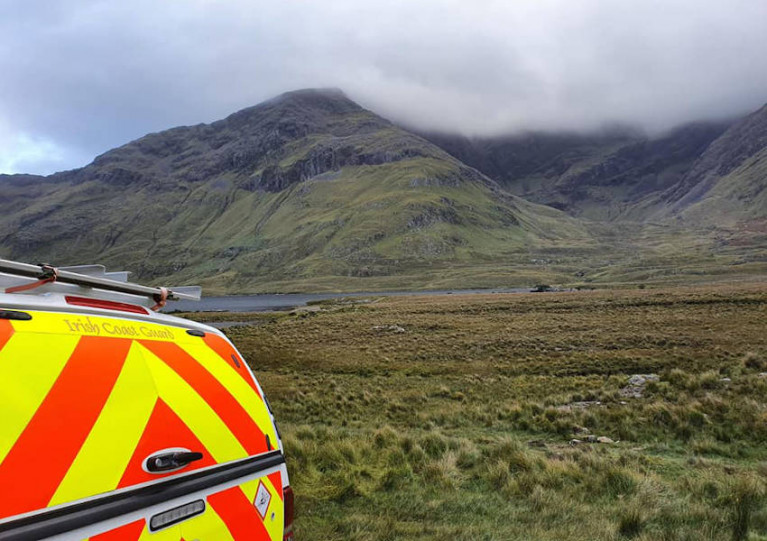Displaying items by tag: Cleggan
Cleggan Coast Guard team were tasked earlier in the week to a collapsed horse on Omey Island off Claddaghduff in western Connemara.
The fallen horse was in grave danger with a fast incoming tide, so the coastguard team members worked quickly with assistance and guidance from two vets from Western Veterinary and the owner to bring the horse safely ashore.
Cleggan Coast Guard later commented on social media: “Thankfully the horse is doing well. We’re delighted to be part of this unusual rescue.”
Also this week, Cleggan Coast Guard welcomed Minister of State and Galway West TD Hildegarde Naughton to its base in north-western Co Galway.
 Minister of State Hildegarde Naughton is presented with a locally made miniature model currach by Cleggan Coast Guard
Minister of State Hildegarde Naughton is presented with a locally made miniature model currach by Cleggan Coast Guard
During her visit, the minister was shown the range of services and facilities the volunteers at Cleggan provide for Connemara, including a demonstration by the unit's drone search team.
In honour of her visit and in light of the minister’s Department of Transport leadership of the Irish Coast Guard, Minister Naughton was presented with a locally made miniature model currach.
Officer in Charge Michael Murray commenting on the visit said: “It’s great to see the minister make such an effort to get out and meet the people who volunteer their time. We are so proud that she is a TD for our constituency as well.”
Airstrip is the Answer for Homeless Cleggan Coast Guard, Says TD
Cleggan Coast Guard in Connemara is long overdue a permanent base — and a local TD insists the village’s airstrip is the answer.
As the Connacht Tribune reports, Éamon Ó Cuív says it is unacceptable that the coastguard service for north Connemara has been seeking a fixed abode for so long.
A number of sites are being considered by the OPW — but Deputy Ó Cuív says none would be more suitable than the State-owned Cleggan Airstrip.
The Connacht Tribune has more on the story HERE.






























































